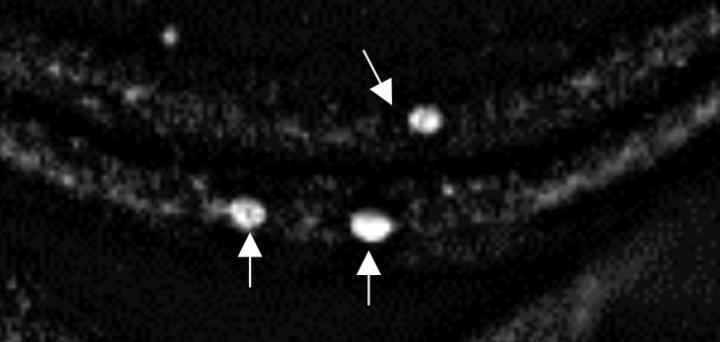Research on alpha-synuclein highlights a potential therapeutic strategy

Credit: Anderson, Hirpa, Zheng, Banerjee and Gunawardena, Frontiers in Cellular Neuroscience, Jan. 2020. The image is cropped from a graphic published in the journal article, which is distributed under Creative Commons…
BUFFALO, N.Y. — Research by University at Buffalo biologists is providing new insights into alpha-synuclein, a small acidic protein associated with Parkinson’s disease.
Alpha-synuclein is known to form abnormal clumps in the brains of patients with Parkinson’s, but scientists are still trying to understand how and why this happens.
The new study explores alpha-synuclein’s basic properties, with a focus on a section of the protein known as the non-amyloidal component (NAC). The research was done on fruit fly larvae that were genetically engineered to produce both normal and mutated forms of human alpha-synuclein.
The study, led by University at Buffalo biologist Shermali Gunawardena, was published on Jan. 10 in the journal Frontiers in Cellular Neuroscience.
Some key findings:
- The NAC region appears to aid alpha-synuclein in moving through pathways called axons that run from one area of a neuron to another. When the NAC region was missing, alpha-synuclein did not move within axons.
- Alpha-synuclein that’s missing the NAC region may help to prevent unwanted aggregates of the protein. In experiments, Gunawardena’s team showed that it’s possible — at least in fruit flies — to prevent some key problems that occur when too much alpha-synuclein is produced: clumping of the protein; abnormalities in the structure of synapses, which form connections between neurons; and a decrease in the speed at which larvae crawl. The scientists found that when the larvae are engineered to produce both excess alpha-synuclein and a version of alpha-synuclein with the NAC region missing, the larvae crawl normally, the protein doesn’t aggregate, and the synapses are normal.
“We show that in fruit fly larvae, we’re able to prevent some problems mimicking symptoms of Parkinson’s disease, such as accumulation of alpha-synuclein in neurons,” says Gunawardena, PhD, associate professor of biological sciences in the UB College of Arts and Sciences.
“Our work highlights a potential early treatment strategy for Parkinson’s disease that would leverage the use of deletion of the NAC region,” Gunawardena adds. “One reason this study is important is because it shows rescue of alpha-synuclein aggregates, synaptic morphological defects and locomotion defects seen in Parkinson’s disease in the context of a whole organism.”
###
The paper’s first author is Eric N. Anderson, a UB PhD graduate in biological sciences. In addition to Anderson and Gunawardena, co-authors include UB undergraduate students Delnessaw Hirpa and Kan Hong Zheng, who have since completed their degrees, as well as Rupkatha Banerjee, a current UB PhD candidate in biological sciences.
The research was partially funded by the National Institute of Neurological Disorders and Stroke in the National Institutes of Health, and the John R. Oishei Foundation. Anderson was supported by the Arthur A. Schomburg Fellowship Program at UB.
Media Contact
Charlotte Hsu
[email protected]
716-645-4655
Original Source
http://www.
Related Journal Article
http://dx.




